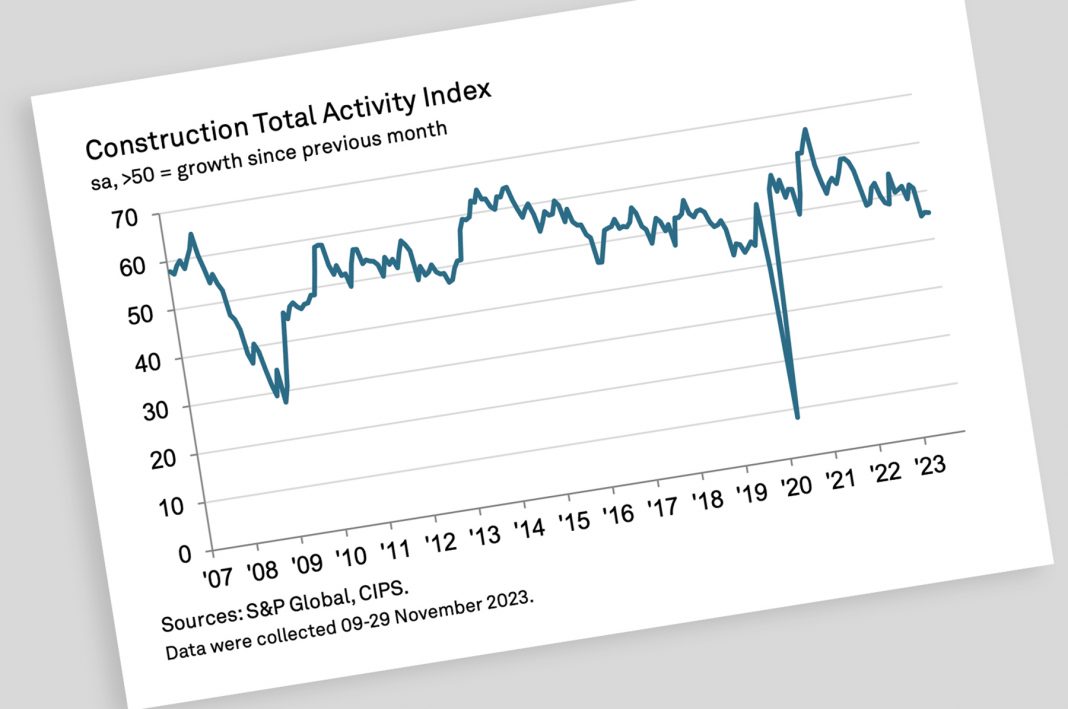Construction purchasing prices fell more rapidly than in 14 years while subdued demand for new housing added to the continuing decline in residential building, all against a backdrop of continuing decline in construction activity, according to the last figures from S&P Global Market Intelligence.
Tim Moore, Economics Director at S&P Global Market Intelligence, which compiles the survey, said: “A slump in house building has cast a long shadow over the UK construction sector and there were signs of weakness spreading to civil engineering and commercial work during November. Residential construction activity has now decreased in each of the past 12 months and the latest reduction was still among the fastest seen since the global financial crisis in 2009. Elevated mortgage costs and unfavourable market conditions were widely cited as leading to cutbacks on house building projects. Rising interest rates and the uncertain UK economic outlook also hit commercial construction in November, while a lack of new work contributed to the fastest decline in civil engineering activity since July 2022.
“Improving supply conditions were evident again in November, linked to rising raw material availability and spare capacity across the supply chain. Greater competition among suppliers added to downward pressure on prices paid for construction products and materials. The latest survey indicated that overall input prices decreased for the second month running and at the fastest rate since July 2009.”
Dr John Glen, Chief Economist at the Chartered Institute of Procurement & Supply (CIPS), said: “There is no doubt that 2023 has been a difficult year for the UK construction sector. Inflated borrowing costs and falling demand have conspired to further slow new building this month.
“Despite this, the sector has finally emerged from a period of intense supply chain pressure and prices are now falling across the board, especially for timber and steel. Projects are no longer being delayed due to unexpectedly high material costs with November seeing the sharpest reduction in purchasing prices since July 2009.
“There will be no quick fixes next year for the sector. Lower demand, elevated interest rates and the prospect of an election promise an uncertain start to 2024. This is a challenging moment for suppliers in the sector, who may have tough price negotiations ahead.”












